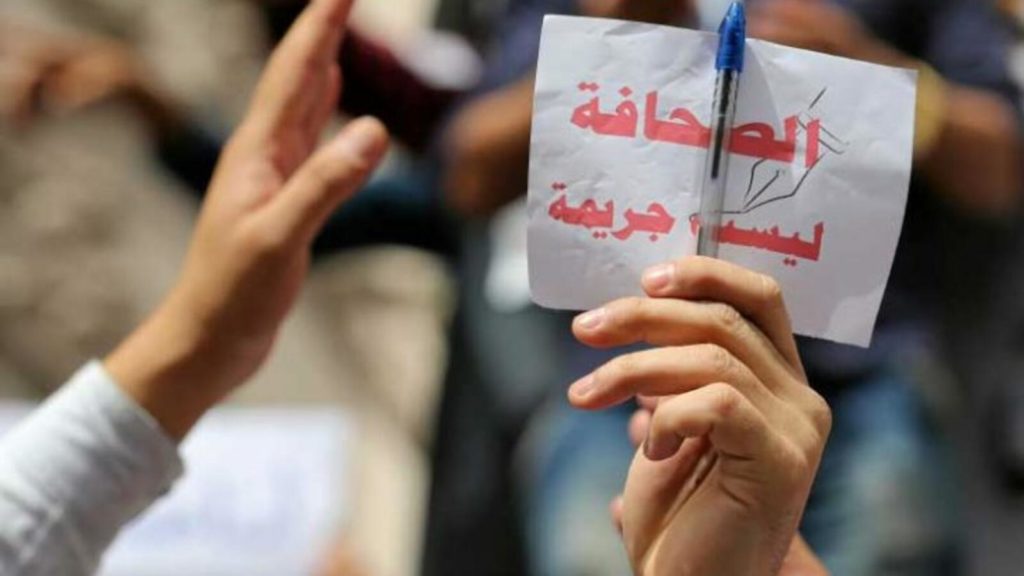Beirut / London – 3 May, 2020
Bahrain: “Gagging Mouths First” – Report on the occasion of World Press Freedom Day 2020
“The criminalisation of journalism must end. That can start with releasing journalists from detention as a matter of urgency.”
David Kaye, United Nations’ Special Rapporteur on freedom of expression, 1 May 2020
On the occasion of World Press Freedom Day 2020, Salam for Democracy and Human Rights urged the government of Bahrain to amend laws and practices so as to allow a multiplicity of independent voices in the media, enable journalists to access information and to hold the government to account, as in hundreds of countries across the globe.
In one, routine, instance, on August 27, 2019, Bahrain’s General Department of Investigations and Cybercrime summoned photojournalist Mazen Mahdi for questioning. Upon release he tweeted that the authorities prevented him from mentioning the reason for the investigation into his work. Mazen Mahdi has worked as a photojournalist for international news agencies.
Salam for Democracy and Human Rights’ report Gagging Mouths First – in reference to government policy towards the media – consists of 15 pages of text, divided into seven sections. Substantive sections include a chronology of media-related developments in the country since 2006; an assessment of press freedom, and relevant laws. A section examines deprivation of nationality as a weapon used against journalists. The report concludes with 10 recommendations. Published in Arabic on 3 May 2020, its summary and recommendations will be translated in the coming days.
The organisation’s evaluation of the state of press freedom in Bahrain cites and echoes that of the organisation’s partners in civil society: that Bahrain does not ensure gut rather restricts and may criminalise press freedom and that the government owns and controls all types of media titles and platforms which, in law and practice, also inhibits free expression. This control extends to non-state employers as the government has refused to renew the credentials of many Bahraini journalists working with foreign news agencies. In just one metric of the ongoing press freedom crisis, Reporters Without Borders ranks Bahrain 169 out of 180 countries for press freedom.
The vague and opaque character of the legal framework facilitates the imprisonment of journalists for peacefully criticising state policies and officials. It provides for the banning of websites that peacefully criticise government policies and journalists face legal sanction and imprisonment for doing their job.
Flying in the face of international law, the authorities have stripped seven Bahraini journalists of their citizenship. Three of them mark World PRess Freedom Day 2020 behind bars while four live in exile.
On release of the report, Researcher Mohammed Sultan set out some of the recommendations, calling on the Bahraini authorities to involve civil society organizations to draft a modern press law in line with international standards and to remove bans on websites.
Mohammed Sultan added, “On World Press Freedom Day 2020, we call on the government of Bahrain to recognise that journalism is not a crime and release journalists and photographers; to end the arrest of bloggers and social media activists and restore the Bahraini citizenship to those deprived of it.”
He urged the government to cooperate with the United Nations’ human rights bodies by implementing the recommendations of treaty bodies and by allowing special procedures of the Human Rights Council to conduct unrestricted missions to the country.
***
For further information, contact:
Mohammed Sultan @MohamedSultanBH (French and Arabic)
Jawad Fairooz @JawadFairooz (English and Arabic)
Drewery Dyke @@drewerydyke (English)
Download & Read

 العربية
العربية Français
Français Deutsch
Deutsch